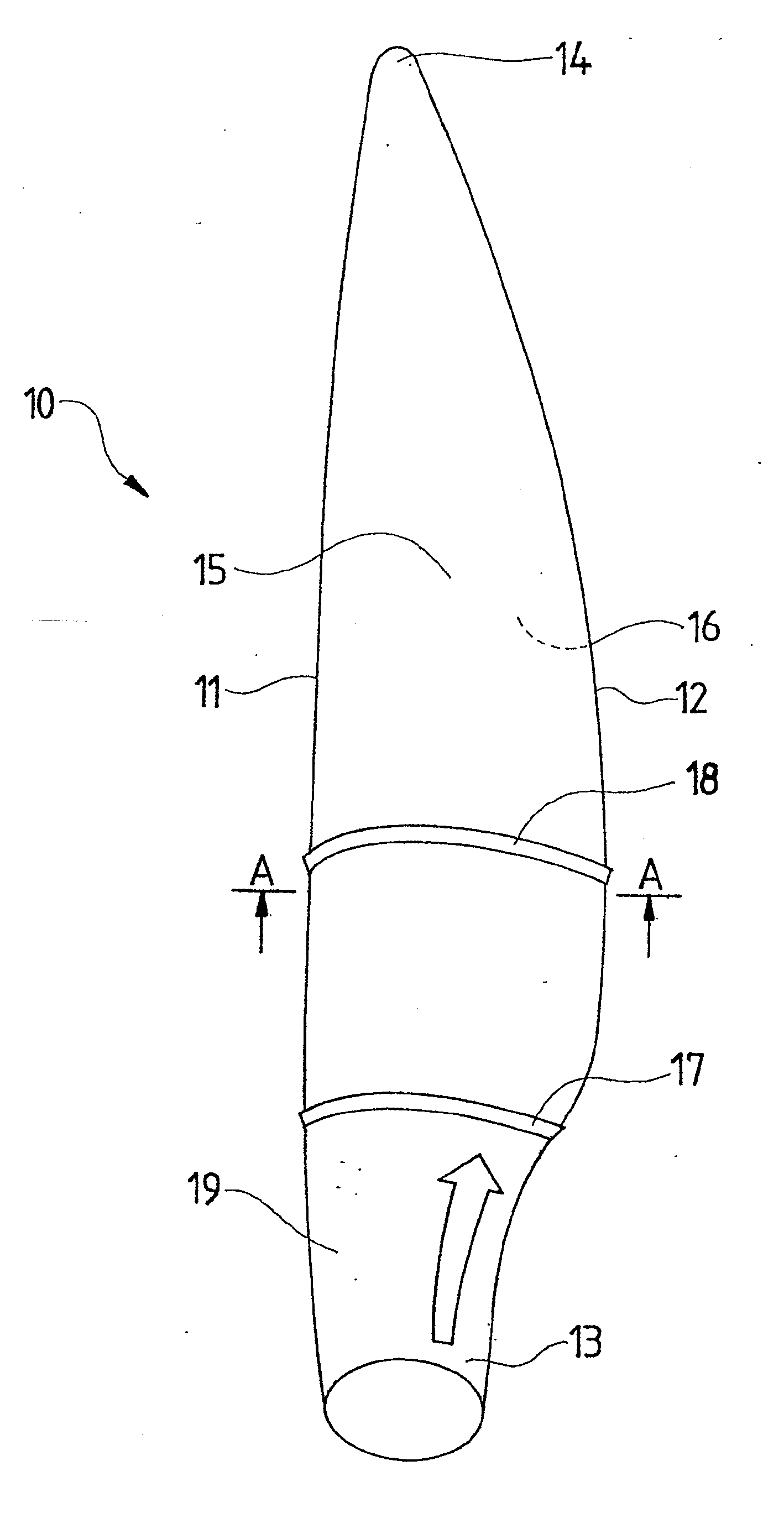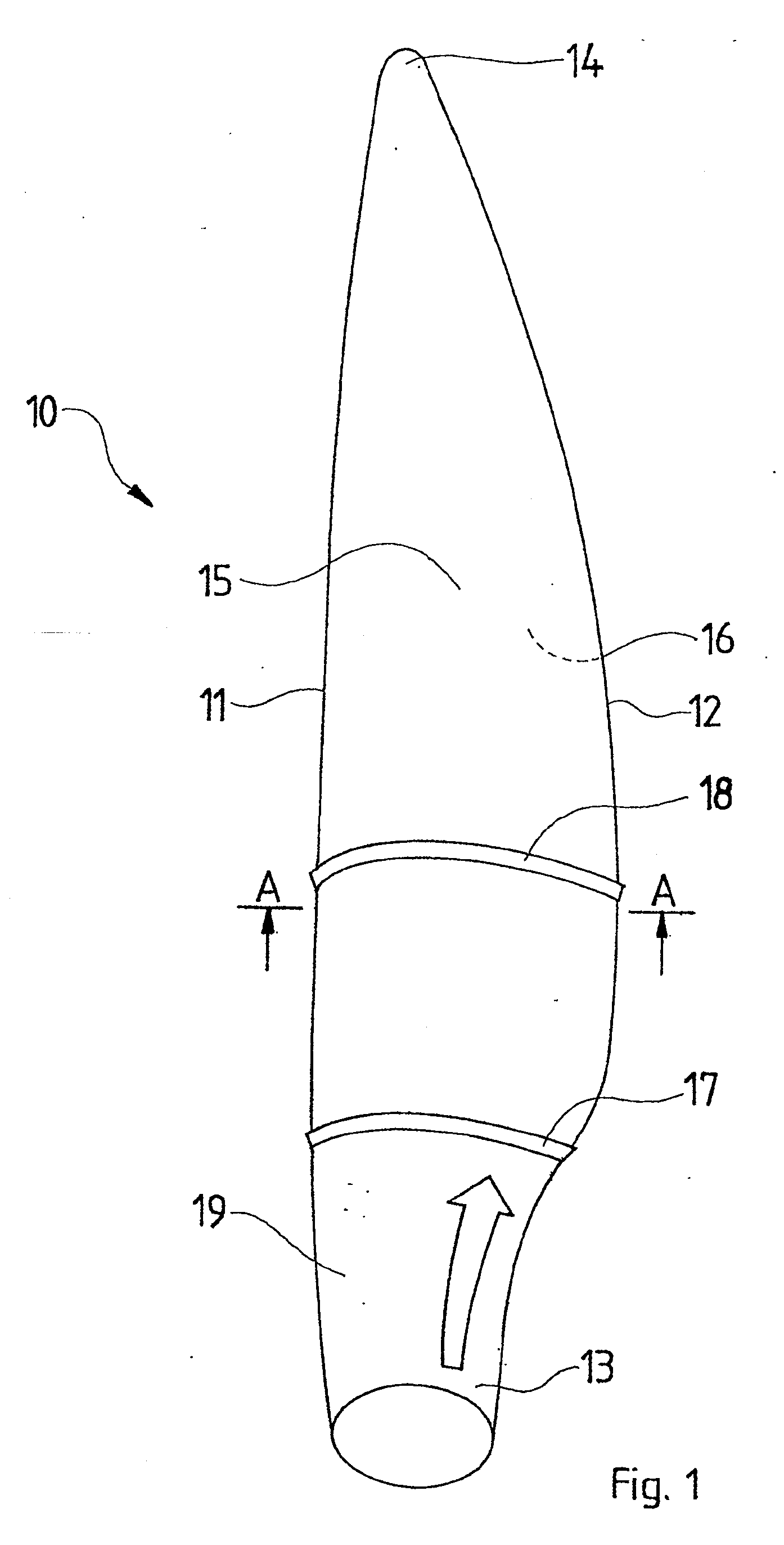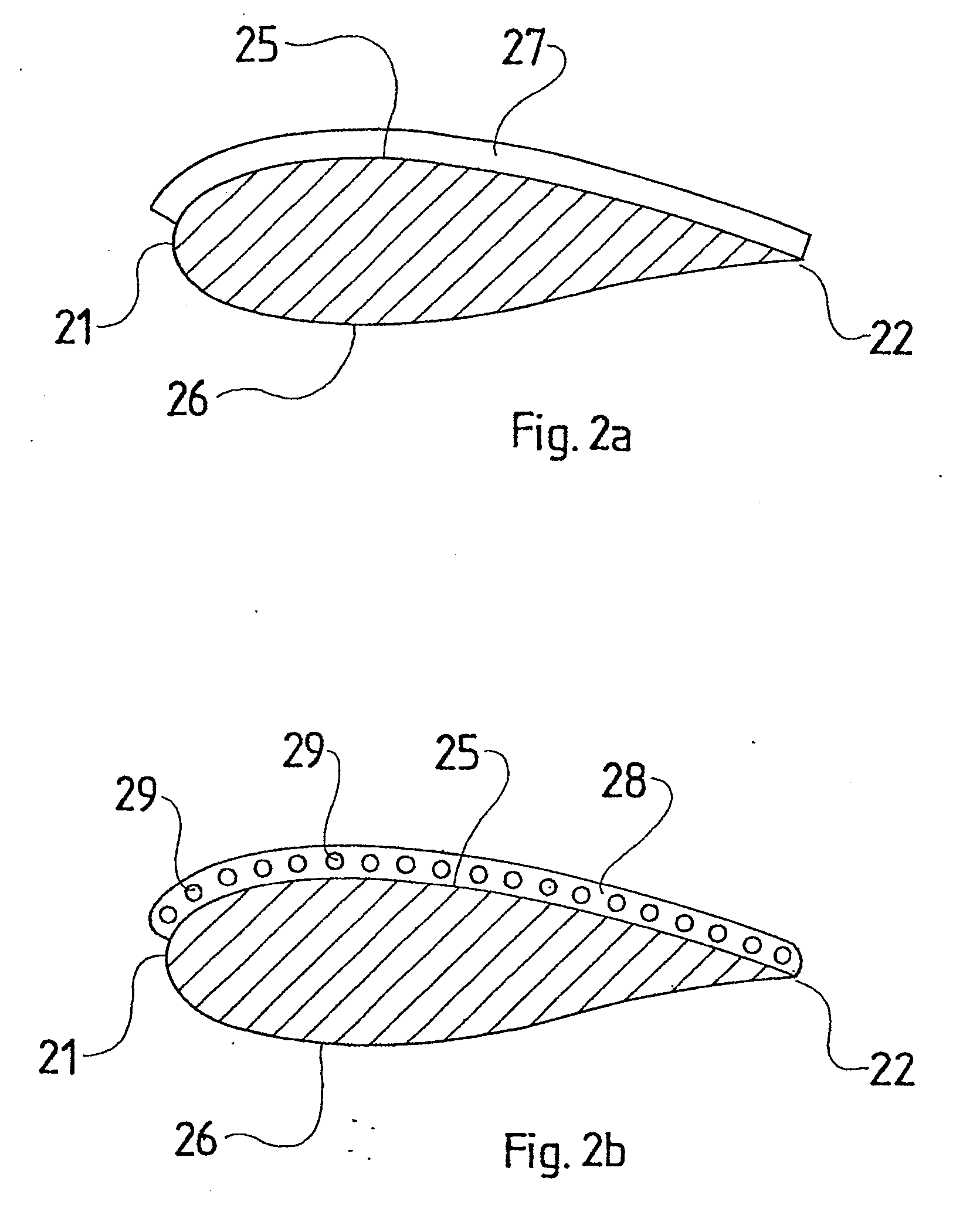Rotor blade for a wind power station
a technology for wind power stations and rotor blades, which is applied in the direction of liquid fuel engines, vessel construction, marine propulsion, etc., can solve the problems of cross-flow and interfere with the effective airflow around the rotor blade, and achieve the effect of improving aerodynamic airflow
- Summary
- Abstract
- Description
- Claims
- Application Information
AI Technical Summary
Benefits of technology
Problems solved by technology
Method used
Image
Examples
Embodiment Construction
[0037]FIG. 1 shows a rotor blade 10 having a leading edge 11, a trailing edge 12, a blade root 13, a blade tip 14, a suction side 15 and a pressure side 16. The relative thickness of the rotor blade decreases towards the outside from the blade root 13 to the blade tip 14. The leading edge 11 points in the direction of rotation of the rotor blade. Planar elements 17 and 18 are mounted in the direction of airflow at the suction side 15 and suppress cross-flows on the suction side 15 and preclude premature airflow detachment. A transition range 19 is characterized in that the contour of the blade root 13, which in this instance is cylindrical, merges into a pear-shaped, lift-generating contour. An arrow denotes the cross-flow.
[0038]FIG. 2a shows a section of the rotor blade along line A-A of FIG. 1, the blade having a leading edge 21, a trailing edge 22, a suction side 25 and a pressure side 26. The planar element 27 is mounted on the suction side 25 and runs from the leading edge 21 ...
PUM
 Login to View More
Login to View More Abstract
Description
Claims
Application Information
 Login to View More
Login to View More - R&D
- Intellectual Property
- Life Sciences
- Materials
- Tech Scout
- Unparalleled Data Quality
- Higher Quality Content
- 60% Fewer Hallucinations
Browse by: Latest US Patents, China's latest patents, Technical Efficacy Thesaurus, Application Domain, Technology Topic, Popular Technical Reports.
© 2025 PatSnap. All rights reserved.Legal|Privacy policy|Modern Slavery Act Transparency Statement|Sitemap|About US| Contact US: help@patsnap.com



